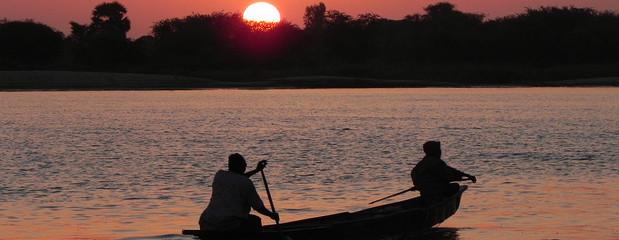Cameroon: volunteer vigilance committees call for more help in combatting Boko Haram

Through their knowledge of the land and surveillance capabilities, local volunteer groups are proving crucial in the fight against Boko Haram.
At 7pm on 1 December, the town of Waza in Far North Cameroon was quiet. By this time in the evening, the only people on the streets were the military and members of so-called ‘vigilance committees’, groups of ordinary residents who help protect the area from Boko Haram attacks. It was some of these local volunteers who, in their routine checks around the town, stumbled upon three young female suicide bombers.
According to Military Commander Colonel Joseph Nouma, one of these attackers was killed by security forces; another managed to kill three members of the vigilance committee; while the third ran into a home and detonated her explosive device, killing three more.
The incident was another deadly tragedy for the region, where Boko Haram have killed several hundreds through sporadic attacks over the last couple of years. But Nouma believes the death toll at the start of the month could have been much higher had the attackers reached their intended targets.
“The kind of explosives they were carrying were far reaching and I think they wanted a more populated place in the early morning of 2 December,” he says. “Thank God the vigilance committees busted their evil plan, albeit at the expense of their lives.”
The role of local vigilance committees in disrupting insurgents’ plans and providing crucial intelligence in northern Cameroon has been praised by many in the army and beyond. “The military is the vertebrae column of this war, but the vigilance committees are no less important in the sense that they serve as sentinels,” says a captain who asked to remain anonymous.
According to Modou Tidjani of the Kangueleri vigilance committee, the Cameroonian military puts a lot of trust in the volunteers and their surveillance.
“We work in perfect collaboration with them. When we get information, we immediately transmit to the military and our information is always credible,” he says.
Major Nlate Ebale confirms this, saying “The information they give has frequently helped the military to bust some attacks even before they happen.”
The central role of vigilance committees in combatting Boko Haram has thus earned the volunteers praise and gratitude from far and wide in Cameroon.
“For some time now, [Boko Haram] has been finding it hard to deploy, except for some sporadic occasions,” says Far North Regional Governor, Midjiyawa Bakary.. “We are pleased with the beautiful symphony between the population and the forces of law and order.”
However their activities have also now made them direct targets for Boko Haram. In October, for instance, Abba Kollo, a member of the vigilance committee in Mbriché village, was brutally assassinated in his home.
“They arrived at about 3am, got him out of his bed, and slit his throat,” says Moustapha Oumarou, who was a friend and colleague of Kollo. “It’s a technique to discourage us, but they will always find us on their way.”
It is hard to count the number of vigilance committee members who have given up their lives in their protection of their towns. “There are many of them who die unnoticed and unannounced,” says Ahmadou Issa, a resident of the town of Mora.
Material support
Vigilance committees have received plenty of commendations in their fight against Boko Haram attacks, including from ministers in government. This vocal support is appreciated, but volunteers note that there has been little material aid. Certain members, many of whom have had to abandon their daily preoccupations amidst the insecurity, are now calling for more support, including in the form of weapons.
“We are on the frontlines, defending our various villages, but we are only armed with rudimentary weapons like machetes, spears, and bows and arrows,” says Alifa Abba, president of the Vigilance Committee for Fotokol.
“Our knowledge of the geography of this place is what is helping us for now, but I am afraid if the government does not give us guns, it will indeed be very difficult for us to continue keeping these terrorists at bay, when they begin to get more understanding of our territory.”
It seems unlikely that the government will grant such a request. A military officer who asked not to be named told African Arguments that “the government is still not quite sure about the role the committees will play if they get access to sophisticated weapons. We need to monitor them so they don’t cross a line that will make them uncontrollable militia. However, government is supplying them with such basic material like megaphones, telescopes, whistles, boots and torches.”
Beyond the wish to be armed, committees are also requesting that the government give them a monthly subsistence allowance.
President Paul Biya last month ordered the disbursement of 10 million CFA ($20,000) to help some vigilance committees, but the beneficiaries consider that sum paltry compared to the sacrifices they are making.
“We have abandoned our daily chores to defend our villages, so I think government should look for a permanent mechanism to help us provide the basics for our families,” says Alifa Abba. “I also think that a special fund should be created to help the families of those who die on the frontlines.”
Many of the vigilance committee members understand that taking on Boko Haram attackers puts their lives at great danger, but they also say that doing nothing would put their communities at even greater threat. And as Boko Haram continues to launch assaults in Far North Cameroon, the role of these volunteers in defending towns and villages looks set to remain crucial.
“It’s a full-time occupation,” says Alifa Abba.
Ngala Killian Chimtom is a Cameroonian journalist.




